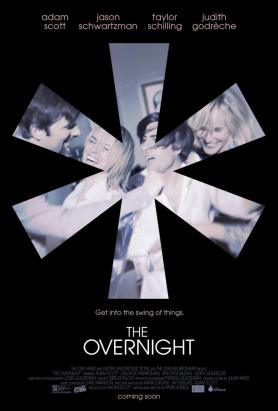It’s tempting to say that if you’ve seen one Wes Anderson film, you’ve seen them all, an ironic comment that I can’t help but think the director would appreciate.
Each and every one of his movies from “Rushmore” on (“The Royal Tenenbaums,” “Fantastic Mr. Fox” and “Moonrise Kingdom” among them) have been calculated narrative exercises containing art direction that has become more and more meticulously rendered with each feature. While viewers are well aware they’re being manipulated throughout, what saves most of Anderson’s films is the genuine heart that beats beneath the artifice, a willingness to be able to find the best in characters whose actions are morally questionable.
All of this is at play again in Anderson’s latest, “The Grand Budapest Hotel,” his most visually ornate — and that’s saying something — to date and his most melancholy as well.
With a narrative that employs a flashback within a flashback, underscoring how remote the characters and their world is to ours now, the film wastes little time in dropping us into the world of the title institution with Mr. Moustafa (a heartbreaking F. Murray Abraham) as our guide, unspooling his life story to a young writer (Jude Law) in which he recounts how he came to work at the most beautiful hotel in Europe in the early 1930s and became the protege of the greatest of concierges.
M. Gustave (Ralph Fiennes) is a man of impeccable taste who expects perfection from himself and his staff as he sets about running the Grand Budapest Hotel. He is a model of well-mannered austerity, and young Zero (Tony Revolori), a new bellboy at the hotel, longs to follow in his footsteps.
While Gustave is conservative in appearance, he’s not without his vices, chief among them bedding the lonely, older women who frequent his place of employment. His most frequent lover, Madame D. (a barely recognizable Tilda Swinton) dies not long after her most recent stay, and Gustave is stunned when he’s told she has left him a priceless painting in her will.
He’s equally surprised when he’s arrested for her murder, as her bitter heirs have prodded the authorities on, Dmitri (Adrien Brody) chief among them, to intercede on their behalf.
It’s at this point, when Gustave finds himself behind bars, that the lunacy of the plot kicks in. Our hero, along with a gang of cons led by Ludwig (Harvey Keitel), a tough guy with a heart of gold, plot an escape, all the while Zero courts and weds Agatha (Saoirse Ronan), a lovely baker who gets sucked into the prison break as well. Meanwhile, Dmitri’s right-hand man Jopling (Willem Defoe, looking wolf-like with sharpened teeth and sunken eyes) tries his level best to eliminate the only man who can prove Gustave’s innocence, which takes him to a monastery where the key players ultimately meet.
One of the recurring themes in Anderson’s films is that while mankind may be able to create things of great beauty, we seldom fail to ruin them with our own petty behavior and flaws. This plays out on screen and is underscored in the way the director constructs his work. While the characters here put forth the appearance of being cultured, they destroy this illusion by their actions whether it be cursing like sailors, being unfaithful or acting in ways that fly in the face of the societal norm.
Gustave is the prime example here as his insecurities and questionable morals where women are concerned undercut the meticulously groomed appearance he’s painstakingly worked to perfect. Only the children in Anderson’s films seem immune to this sort of deception, not having been damaged yet to the point where they feel as though they must hide their true selves from the world.
The film itself represents this incongruity as well with broad and subtle touches. As the mannered comedy devolves into broad farce, odd visual clues pop up, purposely placed there by Anderson to upset his meticulously rendered sets. Why there is a cactus in the kitchen of a home in the Bavarian Alps is beyond me, while a wild gunfight set against the backdrop of an ornate ceiling window are just a couple of the visual sore thumbs the director throws at us to let us know that perfection is often marred by our inexplicable natures.
Ultimately, “The Grand Budapest Hotel” embraces this notion, driving home to us that we must revel in moments of happiness and do our best to ignore the many flies in the ointment of our lives that we’ll encounter.
‘The Grand Budapest Hotel’ (3-1/2 stars out of 4)
Cast: Ralph Fiennes, Tilda Swinton, Bill Murray, Jude Law, Willem Dafoe, Adrien Brody, Jeff Goldblum, Harvey Keitel, Edward Norton, F. Murray Abraham, Saoirse Ronan, Jason Schwartzman, Tom Wilkinson, Lea Seydoux and Owen Wilson.
Written and directed by Wes Anderson; produced by Jeremy Dawson, Steven Rales, Scott Rudin and Anderson.
A Fox Searchlight Pictures release. 100 minutes. Rated R (language, some sexual content and violence). At Art Theater, Carmike 13 and Savoy 16.


